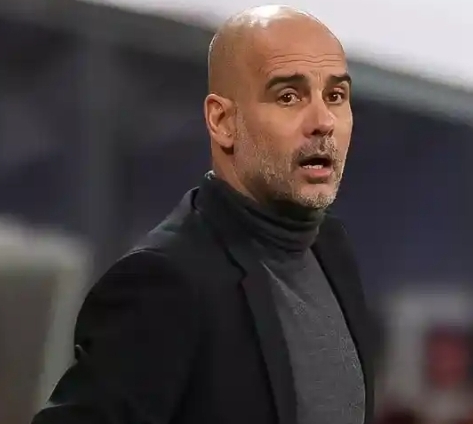Following his remarks earlier in the week over the goal that Liverpool was wrongfully denied against Tottenham, Man City manager Pep Guardiola has once more been questioned about VAR.
Manchester City boss Pep Guardiola has commented on the VAR error that denied the Reds a genuine goal as the aftermath from Liverpool’s contentious loss to Tottenham Hotspur continues. Guardiola says Liverpool must ‘accept’ the outcome while conceding the blunder, however he aspires for higher VAR standards.
In the aforementioned event, Luis Dáz’s goal was wrongly overturned by VAR, resulting in a 2-1 loss for Liverpool. The audio tape of the Stockley Park VAR officers’ “significant human error,” which involved miscommunication between the on-field referee and the VAR officials, shows.
Guardiola, though, opted not to participate in the continuing debate over VAR. He highlighted the necessity of accepting the error and said that the match’s outcome is now “done.” While conceding that people sometimes make mistakes, Guardiola emphasized that the introduction of VAR was intended to minimize such errors and guarantee fair play.
“I said before the Champions League game, so it’s finished. Accept it; it was a mistake, he said to the press. “It’s always challenging; people can make mistakes, but machines must perform these tasks; the VAR is there to lessen that (mistake).”
“We all make mistakes as people do. It’s a mistake that was ultimately made because the machines were introduced for human use. Hopefully this is where it ends.
It is hoped that such occurrences will be reduced as the Premier League and VAR officials continue to evaluate and improve the system, providing a fair and transparent game for all clubs involved. By achieving a balance between human judgment and technological help, football games will ultimately be of higher quality.
Despite being direct, Guardiola is correct, according to Liverpool.com. Liverpool should abide by the ruling in terms of requesting a replay, but not in terms of resolving the VAR issue. The audio makes it abundantly evident that new protocols are required, and ignoring the most recent mistake will not help things get better.

